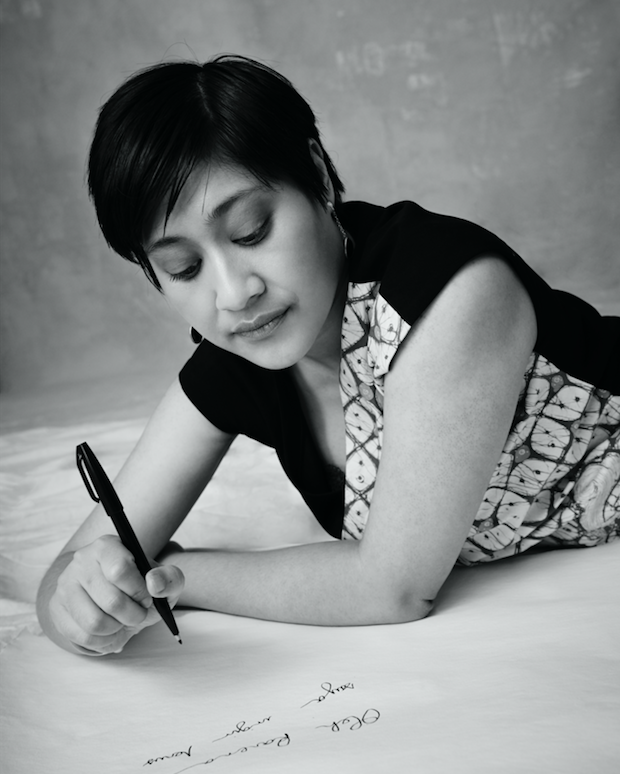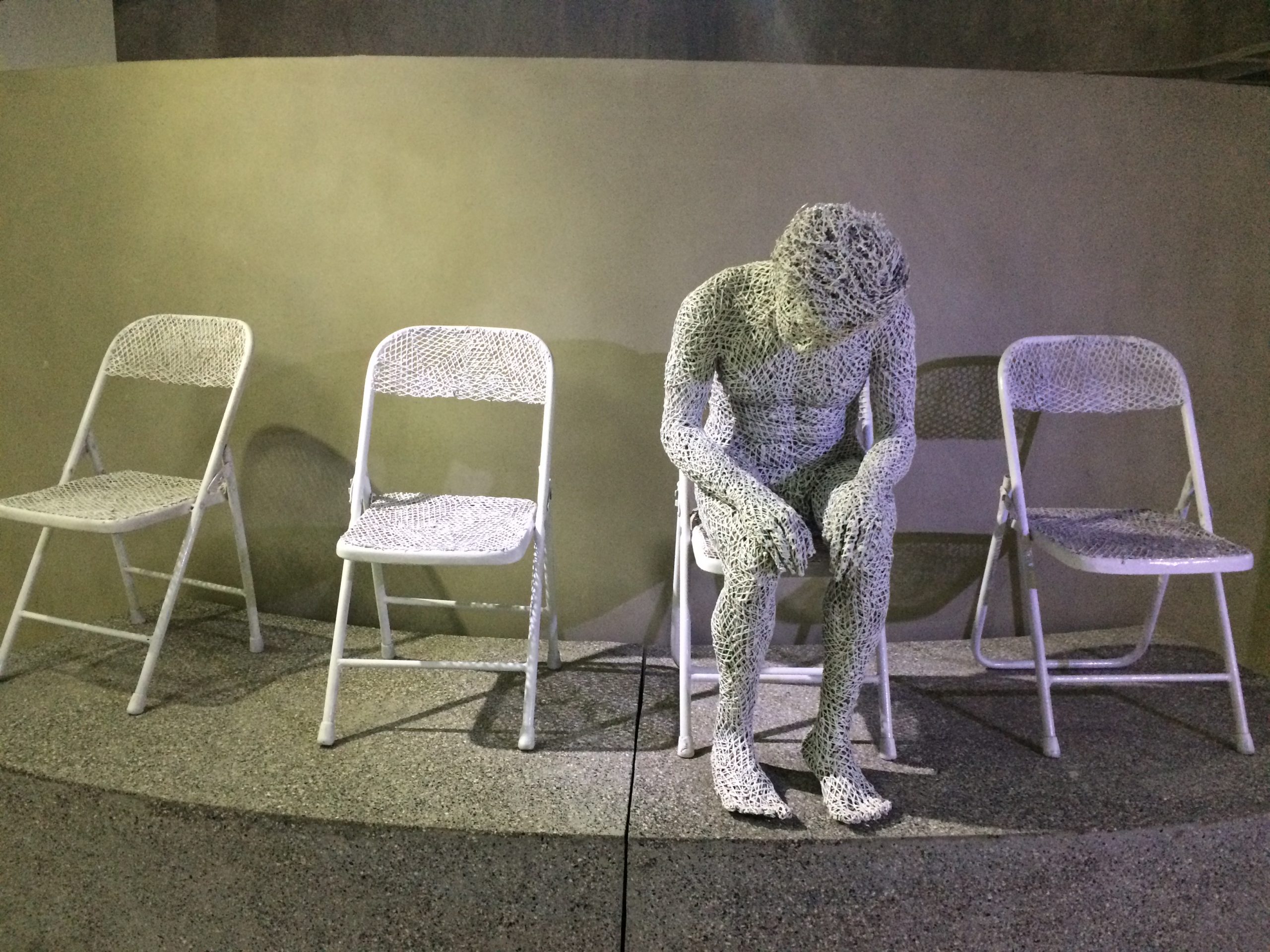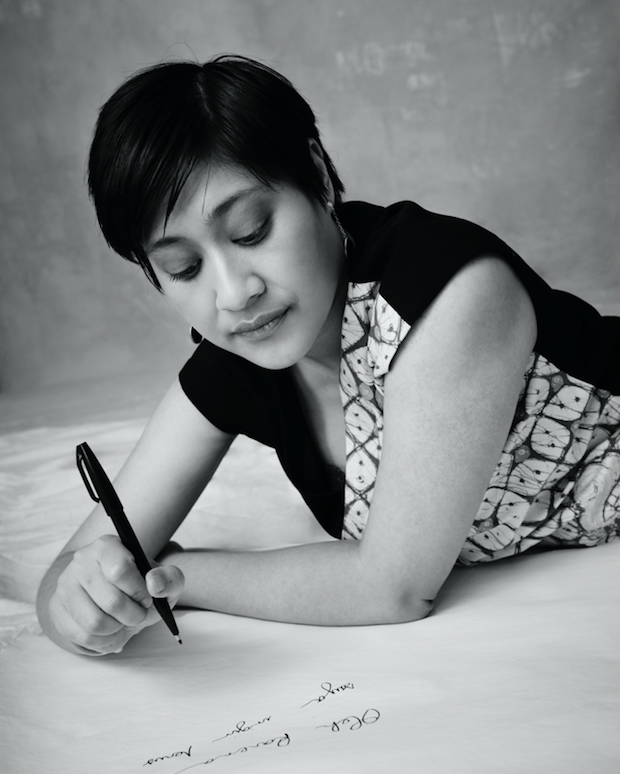Reclaiming the body and soul

At first, Perdana Putri meant to have a chat on anti-colonial literature with Khairani Barokka. Yet Okka took her beyond the initial topic and forced us to rethink a range of different issues, including disability justice. Here is the full interview
**
How were you initially exposed to anti-colonialism, and what drove you to further explore the concept?
Since I was little, I’ve been exposed to activism in Indonesia—especially environmental activism and indigenous activism—so I grew up having connections in those fields through family and close friends. What changed when I was working on my PhD was the way in which I could articulate the differences between anti-colonial movements and decolonial movements.
I currently work at the Decolonizing Art Institute, which focuses on decolonizing the (art) curriculum. There has been much debate over the concept of decolonization/decolonizing, and it’s also been heavily coopted. It’s common practice to simply replace the curriculum with syllabi full of white men or even books by white feminists of the colonial suffragette era. So even within circles concerned with decolonization, I still feel the need to keep educating my colleagues, and I also always end up learning something new in the process.[MOU1] The suffragettes were still colonial and deeply racist—just because white women were liberated, it didn’t mean the colonies were. I also think that colonialism isn’t over, and it has never ended because “developing countries” continue to be deemed as anything but “advanced.” I’m so fed up with terms such as “advanced countries” and “developing countries.” We’re not poor; we’re exploited.
There is a failure to critically understand that countries are still being colonized to this day, especially under colonial capitalism. We talk about decolonization, but our own understanding of Indonesian culture is still filtered through the western bule perspective. We still lack a clear anti-colonial understanding of the nation-state, in that it is inherently colonial. The way I see it, the Indonesian government is separate from the groups of people and the population who live under its rule.
To even begin talking about anti-colonialism, we also have to talk about Papua, Kendeng, the events of 1965, Kamisan, as well as the destructive systems that allow the Omnibus Law and similar things to exist. Decolonization has become toothless—it’s become much too soft. It’s like, “Ok, let’s include everything.” This is the tendency of the neoliberal cultural complex that wants to include everything and everyone, including disabled women.
Many things such as the annexation of Papua is often done under the guise of “anti-colonialism,” but it appears to be another form of cooptation as you mentioned earlier. Your research tackles this within the framework of disability justice. Can you tell us a bit about the concept?
So the term disability justice was coined by Sins Invalid, a group of queer, brown and black artists. There are 10 principles of disability justice, one of them being anti-capitalism.
My aim is to decolonize that phrase in order to reclaim the true meaning of “body and soul” (jiwa raga) that’s found across the hundreds of cultures in Indonesia, as well as what makes a “good” (and “healthy”) body and soul. The concept doesn’t only concern disability, but it also concerns all of us. What does it mean to be smart, good, and strong? What are those labels for? Consider the word able. It refers to a person’s capability, but only as it relates to the tasks demanded by colonial capitalism. Therefore, if you’re unable to perform as a worker under that system, then you are not able. A friend of mine, Slamet “Amex” Thohari, writes about disabled goddesses in his book Disability in Java. When the Dutch established Christian hospitals, the view that disability brought you closer to God was eradicated. And it has only gotten worse since.
According to the International Labor Organization (ILO), 43–60% of disabled people in Indonesia did not complete their elementary education; meaning that their level of formal education is very low, especially among women. This data isn’t so accurate, as the percentage of disabled people in Indonesia is under 20%.[1]
Decolonization means reclaiming what it means to have a good body and revealing that it is imbued with the neoliberal logic, especially when it comes to concepts such as inclusivity and diversity.
The United States and the United Kingdom, for example, use such jargon to talk about disability, but at the same time they contribute to the maiming of Palestinians. In The Right to Maim, Jasbir Puar reveals neoliberal models found within the concept of disability: becoming pro-disability rights while simultaneously maiming others. There is a difference between disability rights, which neatly fit into the neoliberal framework in “advanced countries”, and disability justice. Redefining the concept of body and soul is very important, and its meaning has to be localized. Questions such as: what is this body for? Why do we call others “stupid” or “weak”? What do even mean by ability? I try to address such questions through art.
You and I currently live in the metropole, in the imperial core. How should we navigate such contradictions, especially in our pursuit of disability justice?
It’s important to remember that disability justice is linked with environmental issues. Everything we consume under capitalism always comes at the expense and suffering of others. Take palm oil for example. What is consumed by disabled people is tied to the people who became disabled because of mercury exposure along the rivers of Kalimantan. But even in the metropole, accessibility isn’t always easy. Here, you would still hear people say things like, “Oh, you don’t look disabled.” I don’t like the term invisible disability. How is it invisible when I have to squat every time I walk a few steps? I experience chest pain after a short walk up a hill. But assumptions about (what is seen as a) disability always comes first, especially among women. Many disabled women are too scared to open up, obviously because of the rampant ableism you would find in academia and everywhere else. There’s a long history of ableism as it relates to the fine arts industry and visual arts.
I’m certain there many chronically-ill women in the world, but they have never admitted it. Menstruation, for instance, is serious and studies have shown that the level of pain is identical to the degree of pain felt after being hit by a car. But of course, women would then be accused of being attention seekers, liars, or whiners. Black, brown, and other ethnic minority women have it even worse in “Western” countries. Stocks are still being used in Indonesia. This practice is a remnant of the violent colonial era: people who aren’t “normal” have to be exiled and treated badly.
What we can do is build solidarity and try to help each other because there’s still a lot of racism even in disabled communities. White women tend to speak for everyone even though women of color tend to be more vulnerable to chronic illnesses. In the UK, for example, there are a lot of disabled people who come from South Asian backgrounds as result of a variety of factors. There are statistical discrepancies—those who claim they are disabled and those who are actually the most affected. Apart from that, there’s also a lot of stigma and racism in medicine, even though not all disabilities stem from diseases. The language that we use can also further complicate the problem. Attaching words such as “blind” or “deaf” to certain expressions, or calling something or someone “stupid.” We have to learn from each other and avoid making assumptions about other people’s lives. We have to prioritize and move forward in solidarity with disabled communities because unfortunately, in Indonesia, many still tend to act based on a sense of pity.
To what extent has Indonesian literature approached disability and/or anti-colonialism?
It’s impossible to claim that we know everything that’s ever been written in Indonesia, considering there are over 700 languages. It would be incorrect to only recognize works written in Bahasa Indonesia as Indonesian literary canons. What about the literary cultures of Papua, Manado, and Jambi? We can’t generalize “Indonesian literature” because there’s so much we haven’t learned about and read.
Oftentimes the problem is also rooted in archiving and distribution. When I was in Pekanbaru, I had a chat with Komunitas Disabilitas (Community of Disability) and took part in their radio show. It turned out they had a lot of radio sessions that weren’t recorded. Another example is Sign Language, which remains excluded from literature altogether. Up until now, there’s still a huge gap between the language of disability and “abled” language in Indonesia. Such generalizations have to be resisted in the metropoles, as well as in cities like Jakarta or even patriarchal art circles that tend to say, “Oh, this is literary canon.” Such examples of imperialism and patriarchy can be found everywhere, in art and literary communities that say, “We don’t speak that language, or read books or short stories from other communities.” Just because we don’t read them, it doesn’t mean they don’t exist.
What are your thoughts?
I also haven’t read every literary work in Indonesia, but I think it’s important to scrutinize the narrative contained in a story, and how we connect that narrative to the power structures we try to counter.
Coincidentally I was a mentor in the Ceritrans program along with Eliza, Intersastra, and House of the Unsilenced. There are many transwomen who are disabled, but because they are the main breadwinner, they have to go into prostitution, the sex trade, and work at massage parlors. While their work isn’t always miserable, they are still at risk because the sectors they work in aren’t protected yet. They become even more vulnerable. Disabled people and transwomen have to be the ones who control the narrative, otherwise they’ll only be seen as objects of pity.
In art communities, the concept of “care” is often used in the process of creating works of art and nurturing communities.
Yes, but it tends to be misused. For instance, at a conference that was supposed to focus on care and community in the arts, not a single black panelist could be found even though it was during the height of the Black Lives Matter movement. One of the participants said that they wanted there to be a black speaker. What ended up happening instead was white members of the committee received access to art therapy while black members got free therapy. Nobody asked for therapy. We wanted justice. So what does “care” even mean? Why is there a tendency to assume that all black people need therapy?
That happened at a conference on care, and that’s how they interpreted care. It shows how necropolitical capitalism is still found in spaces of care. Concepts of care and decolonization have become deeply coopted. [That conference] paid more attention to white people who actually quoted black writers such as Audre Lorde, Angela Davis, and members of the Black Panthers. This is citation politics, but it’s geared towards capitalism.[MOU2]
I appreciate the well-kept secrets of Indonesia because they stop our ideas from being coopted. We have a right to reject translation and inclusion. Because at the end of the day, the question still remains: included in what?
Translation (of texts) can also be incredibly intrusive and colonial.
Exactly. I talk about secrecy in my residency research. The practice of “collecting” is serious. The British Museum states that their collections come from “field collectors”—but what they really mean by that is people like Thomas Raffles. That information conceals all the brutality and violence that happened.
This [practice of collecting] is just another part of the surveillance state, right? All of our data (information, text, knowledge) has been taken. Academia also partakes in this mode of collecting. We can’t talk about “decolonization” if we only end up rebranding the “Enlightenment.” Many indigenous communities around the world refuse to be translated—and that is a crucial right.
**
[1] Statistics Indonesia (Badan Pusat Statistik) reports that roughly 4.3% of the Indonesian population are disabled; WHO and ILO doubt this claim as their research points to a much higher percentage (10–15%).



